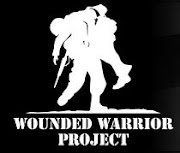
Sheffield F. Ford III
The 23rd and 24th of June 2006 would be a crucible of leadership and heroism for an already battle-tested and decorated captain in the U.S. Army’s Special Forces. Captain Sheffield F. Ford III was in charge of some 16 Americans and 46 Afghan Army soldiers during "Operation Kaika" in the Panjawi District of Afghanistan’s Kandahar province. In the bleak farmland, criss-crossed by ditches and barren expanses, Ford led his unit to "re-establish order" in the contested region, entering a Spartan Afghan village on the 23rd. The dilapidated buildings and mud huts were hiding a Taliban force of unknown strength with one thought on their minds: killing Americans and the Afghan soldiers working to take back their country. In their hastily prepared patrol base, Ford organized a perimeter as night enveloped the isolated Special Forces team and their Afghan allies.
As darkness fell, "all hell [broke] loose." From three directions, rifle, machine gun, and rocket-propelled grenade fire landed and exploded on their position. One of Ford’s squad mates later said they had "not seen this disciplined execution of infantry tactics" by the Taliban. Ford dug his men in to repel the assault.
Moving from position to position, he alternated between barking orders, firing at the enemy, and rallying the Afghan soldiers with him. As the night crept on, the remaining Taliban fighters withdrew and Ford took stock of the situation.
Early the next day, he ordered some of his Special Forces operators to lead a team of Afghans into the suspected Taliban hideout. As the unit engaged the hostiles, it was divided in two when some 200 Taliban fighters poured out, separating the American attackers and surrounding the make-shift patrol base.
Over the radio, Ford was connected with one of the translators who had been leading the mission on the Taliban position. The translator saw two Americans were fighting despite being severely wounded and feared capture at any minute. Knowing the ramifications of being taken alive by the Taliban, the translator told Ford he would, if ordered, end the suffering of the troops and his own life rather than be captured. Ford responded, "We’ve got people coming." Ford organized and launched an effective rescue to recover the translator and wounded troops, even if they were mortally wounded. He would not allow American or Afghan alike to be taken in any condition by the Taliban.
The adversaries fought so close to one another that the terrorists screamed to the Afghan soldiers that, "we can forgive you; just put your weapons down and walk away. We want the Americans alive." The months of training and the ties formed between the Americans and the Afghans were put to the test. Seeing the example of Ford running to each of the beleaguered fighters in the face of constant fire, and remembering all they had endured alongside their American trainers, the Afghan soldiers responded to the Taliban’s offer with well-aimed shots and an unbreakable defense.
Exemplifying the U.S. Special Forces motto, De Opresso Liber (to liberate the oppressed), Ford inspired his Afghan troops to stand up to the Taliban fighters and bring them down. He led an evacuation of all the men under his command, wounded included, out of the village under the cover of Apache attack choppers to ensure all would be safe, while sealing the fate of the insurgents. Ford successfully extricated his men, and the unit had more than 120 confirmed kills. Just as the Americans and Afghans had trained together, they sacrificed together; two American and three Afghan soldiers would not leave the battlefield alive. For his accomplishments in the face of such an overpowering force, Ford was awarded the Silver Star, the nation’s third highest military award.






No comments:
Post a Comment